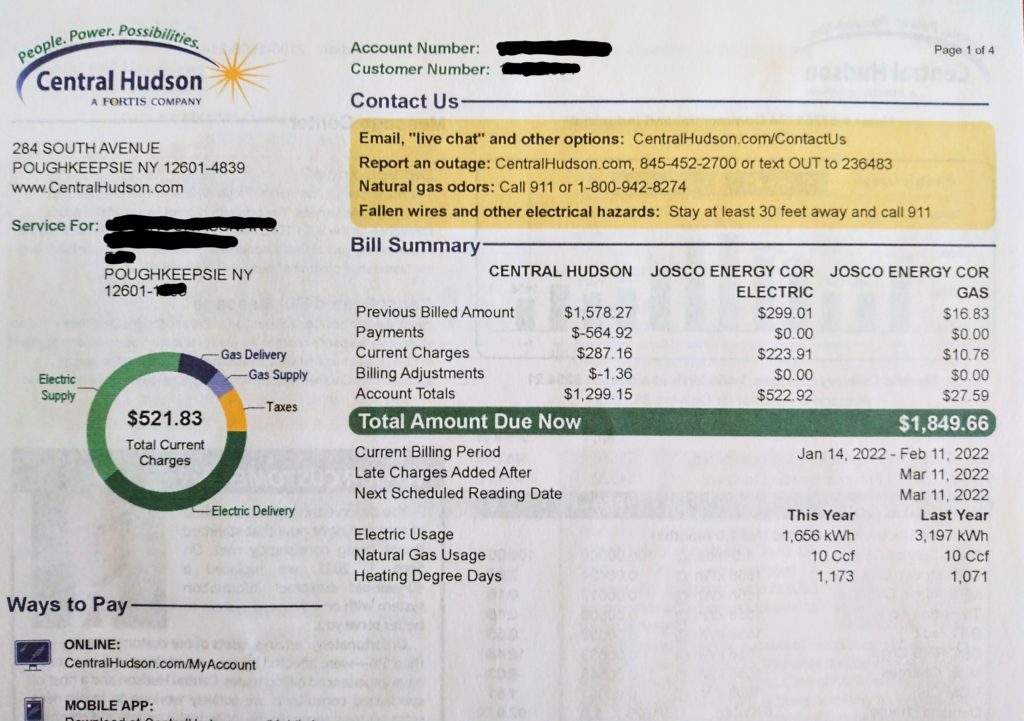NEWBURGH – A month ago, Assemblyman Jonathan Jacobson, (D-Newburgh), held a virtual public forum to try and prod Central Hudson to address its billing problems that have led to exorbitant bills for many of its customers and his constituents.
A month has passed, and Jacobson is still not happy. So, he invited fellow assembly members for another virtual meeting with the Public Utility Law Project to help their constituents know their legal rights about their high energy bills.
“My district’s utility, Central Hudson, has put consumers under additional stress by failing to bill 3-5 months at a time,” said Jacobson, “and then offering an estimate bill – which is impossible to verify, especially with automatic payments. Grouping many months together defeats monthly billing.”
Other issues facing customers include the cost of storm recovery and the high cost of the commodity before it’s sold to make a profit. And it’s estimated a million state residents are behind with their energy bills.
Richard Berkley, of the Public Utility Law Project, said consumers are allowed to pay as much as they can without having their service terminated. And he advised consumers not to be frightened by a termination notice.
“If you can only pay $5, call the utility and tell them because your other vital bills your family has, you can only pay $5,” he said. “You will get a termination letter to try and frighten you into paying, but unless they have scheduled a firm date of termination, there is no termination in place yet.”
He said to ask for a 30-day courtesy hold if a date has been scheduled and to seek other find financial assistance and to tell the utility company that.
A chronic medical condition should grant a 30-day extension, which can be done twice. And the need for life-sustaining equipment can also deter a cut-off of electricity indefinitely
“That life-sustaining equipment requires constant electrical service, and without it, someone in the household will die,” he said. “With a household in that situation, they cannot be shut off no matter what, no matter how high their bill or no matter how long they have been unable to pay.”
And state residents, said Berkley, are entitled to a deferred payment plan before a utility can be terminated.
“It is unlawful to shut off the consumer in the State of New York if they have not been offered the ability to negotiate a deferred payment agreement with the utility,” he said.








